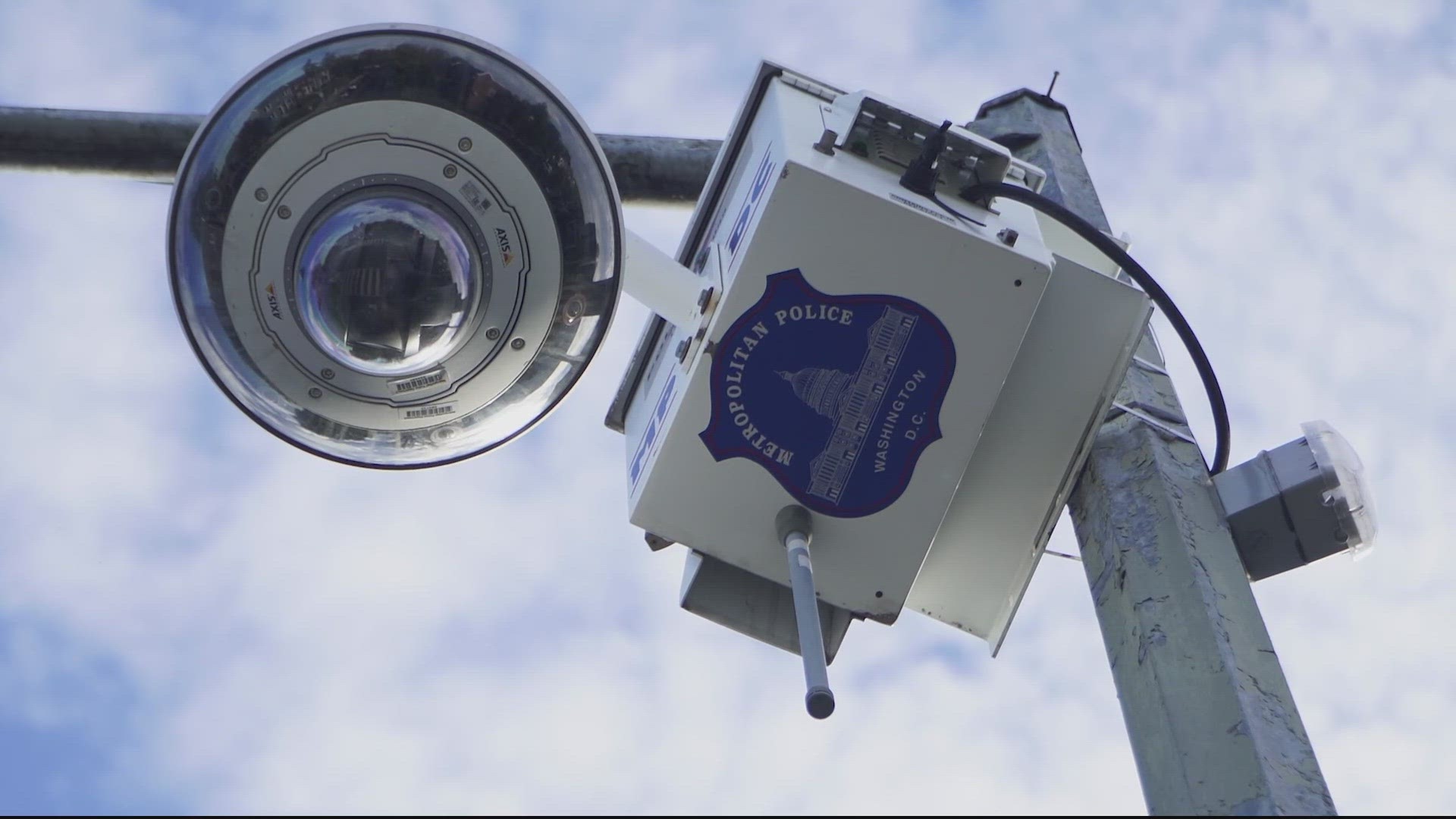WASHINGTON — The mayor has a message for would be criminals in D.C.:
“If you haven’t figured it out by now, you're gonna be on camera you're gonna get caught," said Mayor Muriel Bowser.
And now, the city’s 300 plus cameras will be monitored in real time.
On Thursday morning, the mayor toured the new home of D.C.’s Real Time Crime Center. Come January, officers from nine federal and local police agencies including Fairfax, Montgomery, and Prince George’s Counties, U.S. Capitol Police, Secret Service, Amtrak, and Metro Police will be watching the camera 24/7, 365 days a year.
The mayor hopes to double the number of cameras in two years and will ask businesses to take part in the real time center. Chief Pamela Smith said often criminals cross borders. The chief used a carjacking in Prince George's County as an example.
“When that call comes in, having a person, whether it's a sworn officer or professional staffer sitting in that space as an analyst, we can track that vehicle in real time and it will be quicker response time than we have right now,” explained Smith.
But the ACLU of DC called it an “alarming expansion of government surveillance.” Their complete statement is below:
"A center where police watch what people do in the District every hour of every day is an alarming expansion of government surveillance. With no oversight, the real-time surveillance center leaves serious questions about our safety and our rights unanswered. What behavior will police be watching for? What will they do if they think they see it? How will police use what they see, and who will they share it with? And will anyone be there to ensure that police don’t violate people’s rights? Unchecked government surveillance does not improve public safety, and it threatens the rights of all community members. Real public safety requires transparency, safeguards, and accountability."
Chief Smith said, “That is something we will work with our legal team to make sure that information we do gather as far as data is accessible to the public."
Bowser added, “We have to more technology to balance off not having the number of people and resources we haven’t had in past years so no camera will replace a live police officer, but it does enhance our ability to be in more places."
Smith said the center will also clear up confusion and communication issues between jurisdictions, as in the case of a 16-year-old Fairfax teenager who was tipped off by police that he was wanted for a DC homicide a full week before MPD even had an arrest warrant.
Prosecutors allege he used that week to get rid of evidence. The chief said her officers’ actions informing Fairfax too early are under investigation.
“In all fairness to the investigation we’ll let that play out and if there is something we need to do better on our end we will do that clearly have the personnel in that space will certainly help us with those disparities,” said the chief.

